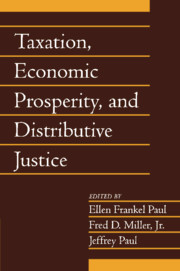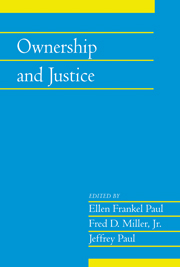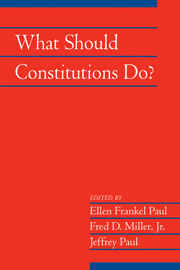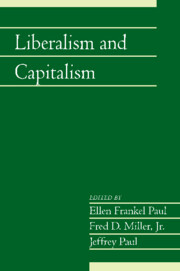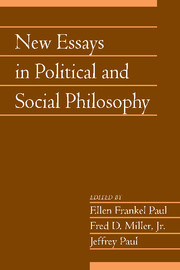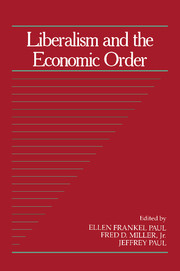Taxation, Economic Prosperity, and Distributive Justice
What constitutes a just tax system, and what are its moral foundations? Should a society's tax regime be designed to achieve a just distribution of wealth among its citizens, or should such a regime be designed to promote economic growth, rising standards of living, and increasing levels of employment? Are these two goals compatible or incompatible? Why should justice not require, or at least lead to, an increase in general prosperity? The essays in this volume examine the history of tax policies and the normative principles that have informed the selection of various types of taxes and tax regimes; economic data to discover which tax policies lead to economic growth; particular theories of justice or property rights regarding the design of tax systems; and other essays propose specific tax reforms. Still others challenge traditional theories of taxation, offering new ways of understanding the fiscal relationship between governments and their citizens.
- Features essays from fourteen prominent historians, philosophers, political scientists, economists, and legal theorists.
- Explores diverse aspect tax policies and justice from various perspectives
- Offers valuable contributinos to current debates over taxes and the nature of justice
Product details
August 2006Paperback
9780521685993
316 pages
228 × 153 × 16 mm
0.43kg
Available
Table of Contents
- 1. Social philosophy and tax regimes in the United States, 1763 to the present W. Elliot Brownlee
- 2. The impact of tax policy on economic growth, income distribution and allocation of taxes James D. Gwartney and Robert A. Lawson
- 3. Taxes, growth, equity and welfare Richard Vedder
- 4. The consequences of taxation Joel Slemrod
- 5. Justice: a conservative view John Kekes
- 6. Non-absolute rights and libertarian taxation Eric Mack
- 7. Taxation, the private law and distributive justice Kevin A. Kordana and David H. Tabachnick
- 8. Taxation, the private law and distributive justice David H. Tabachnick
- 9. The uneasy case for capital taxation Edward J. McCaffery
- 10. Households and the fiscal system Edward J. McCaffery
- 11. Taxation, the state and the community Jeffrey Schoenblum
- 12. Choice, catallaxy and just taxation: contrasting architectonics for fiscal theorizing Richard E. Wagner
- 13. Government as investor: tax policy and the state Jonathan R. Macey.

